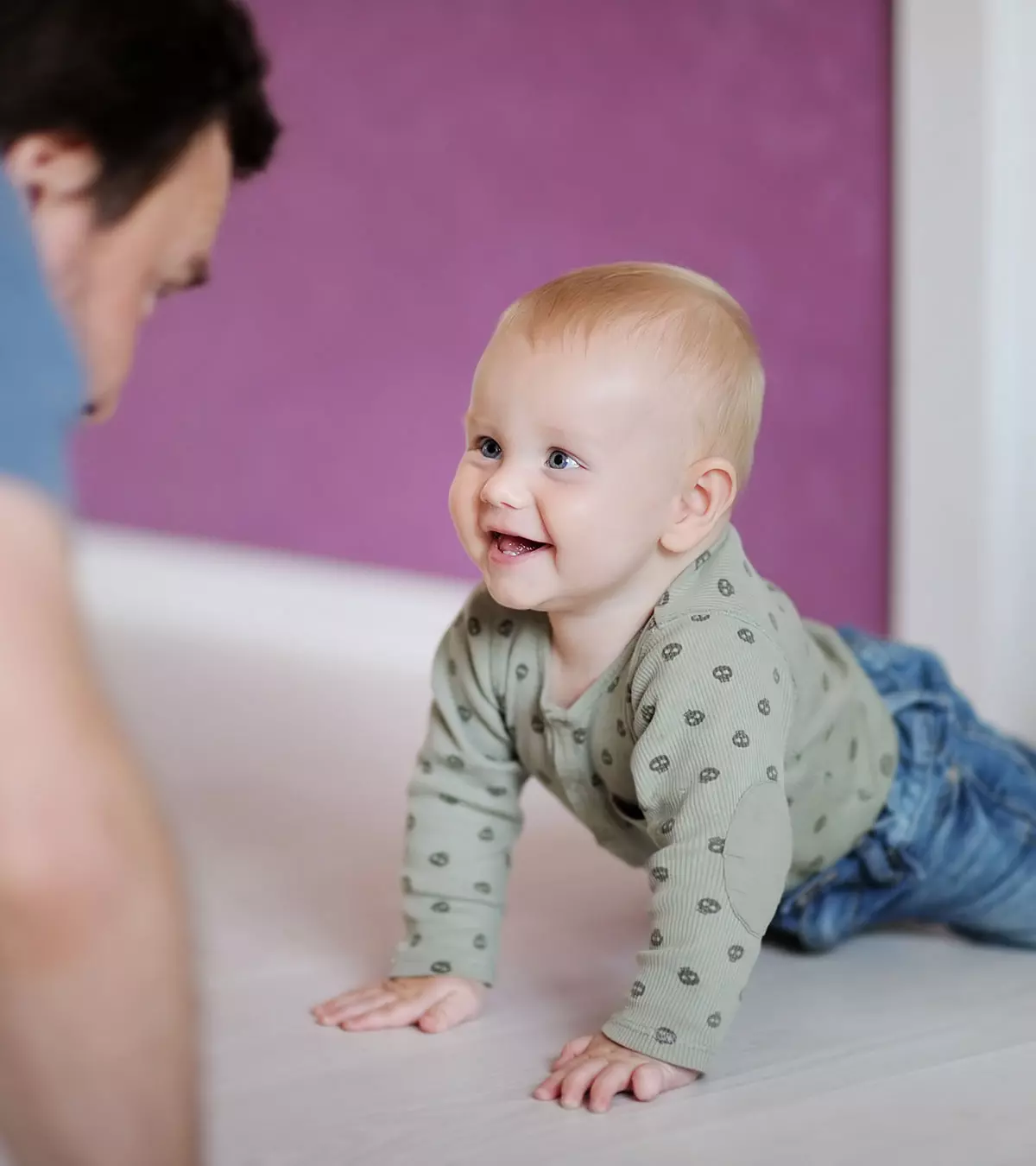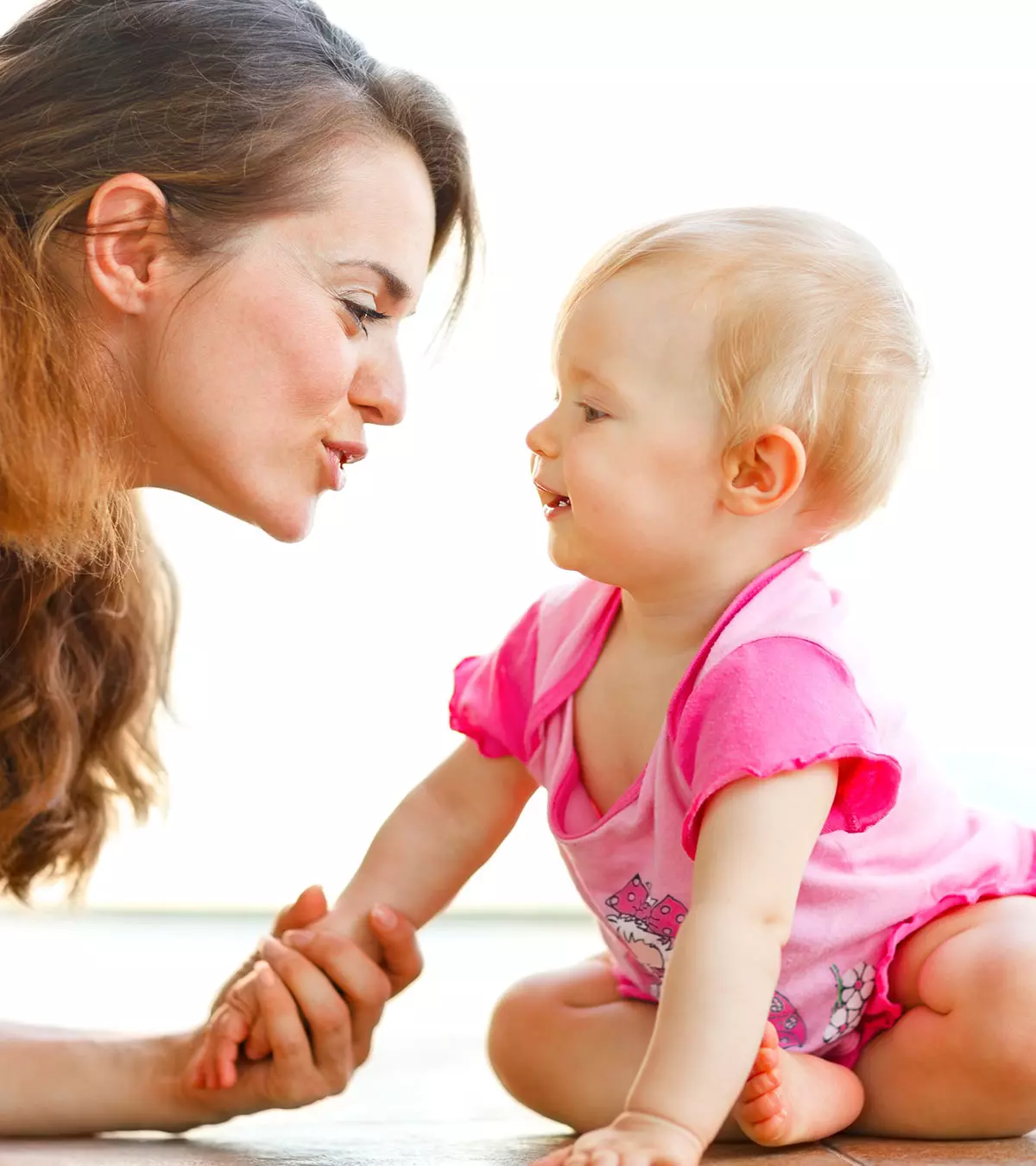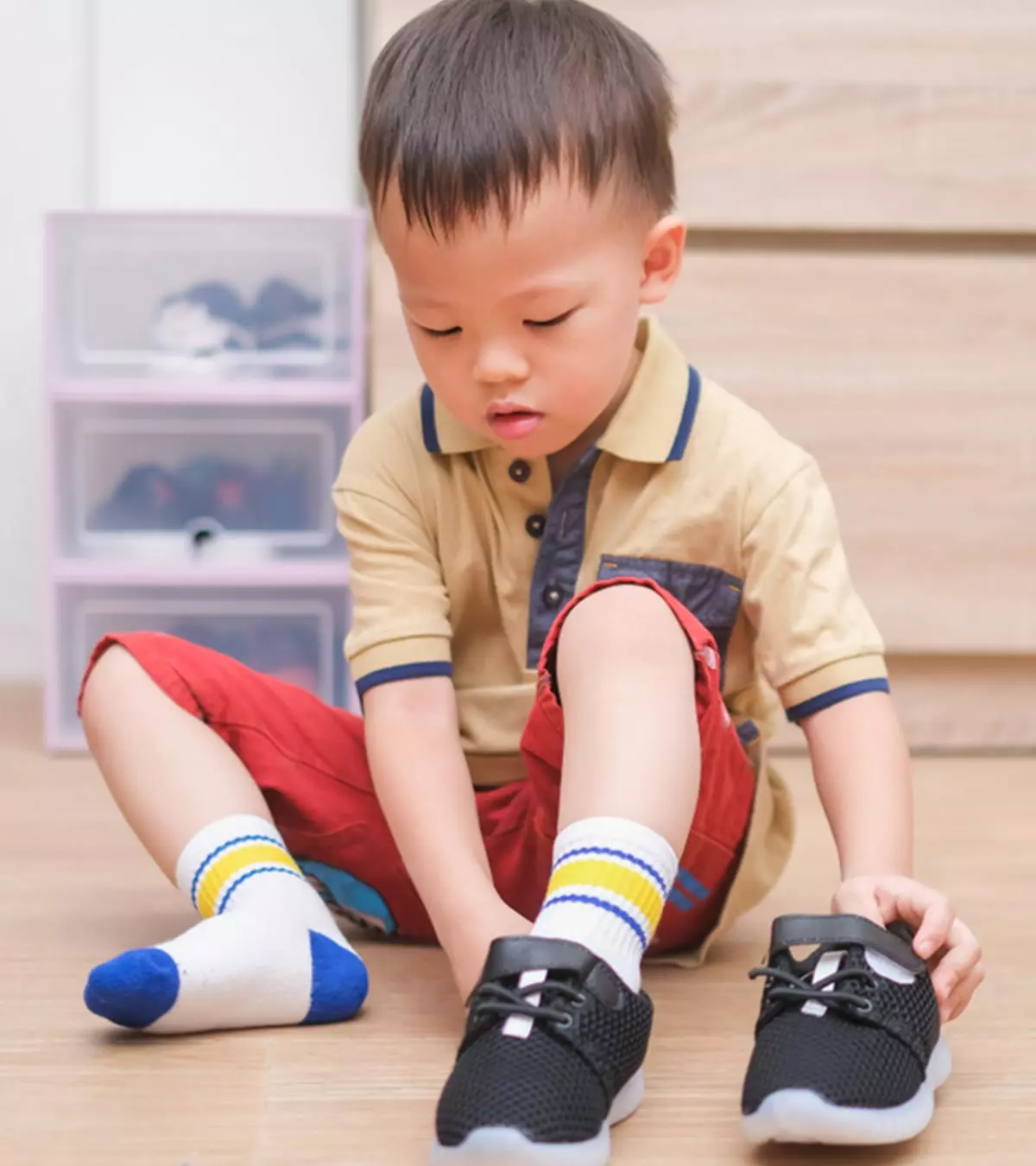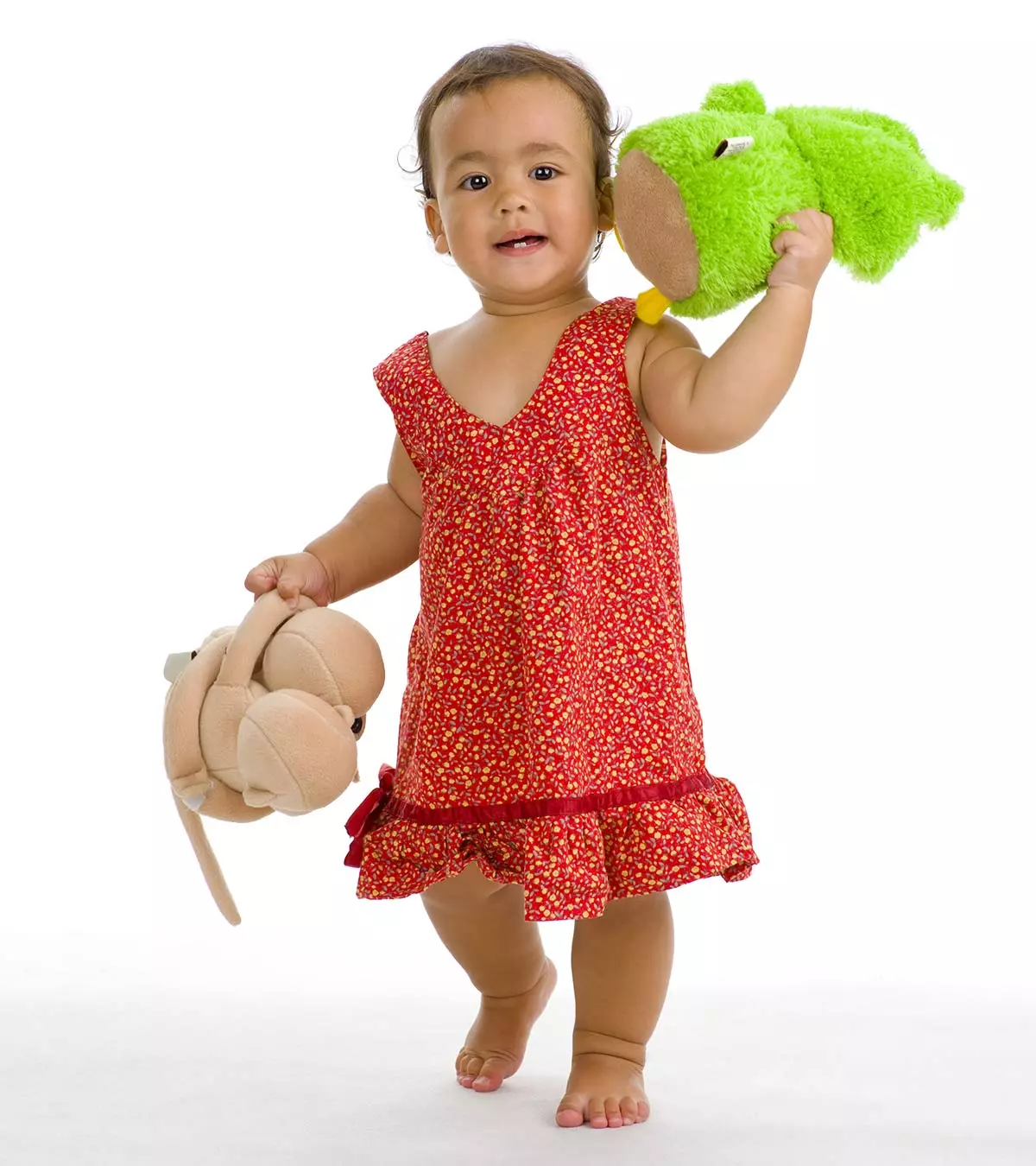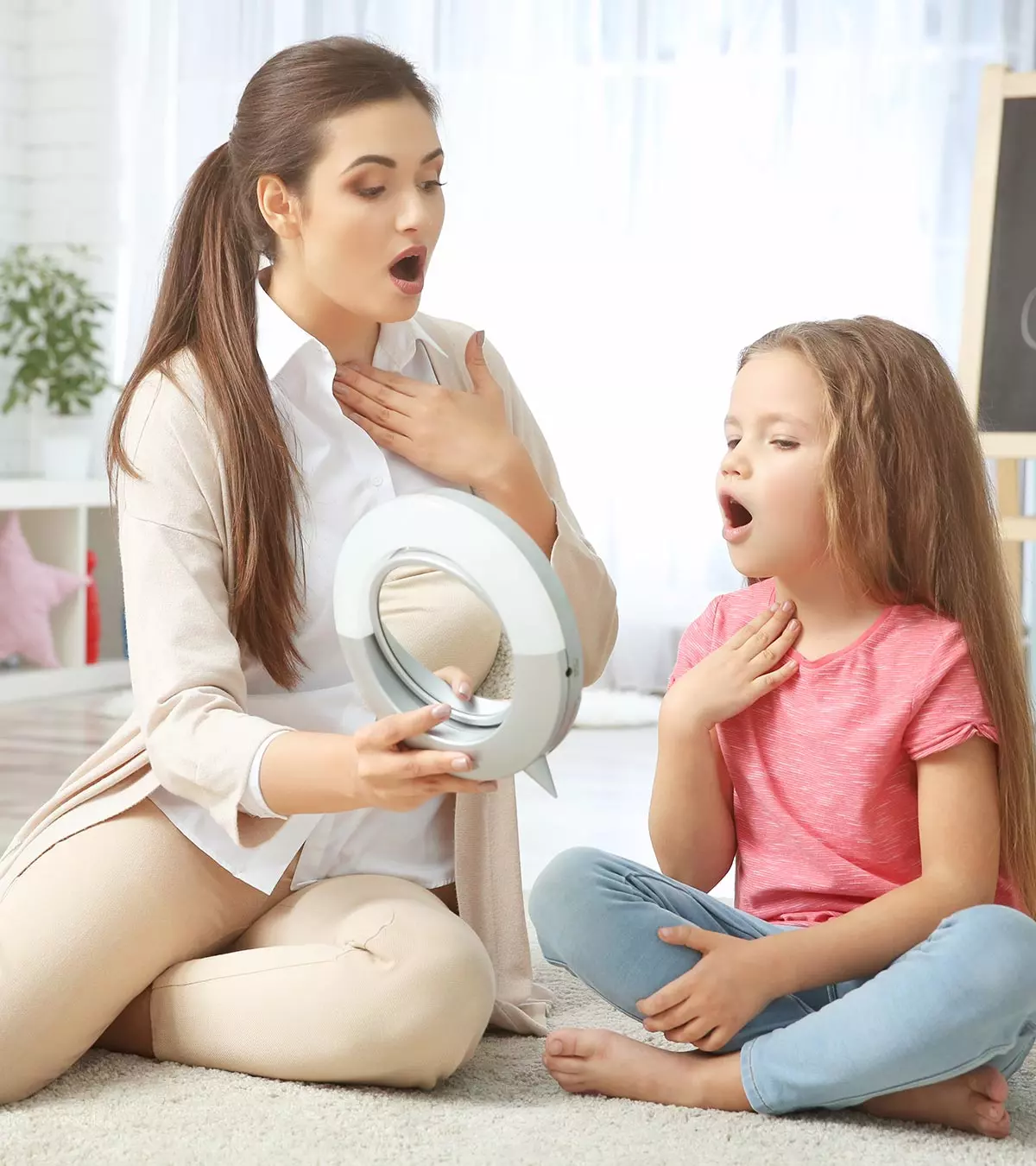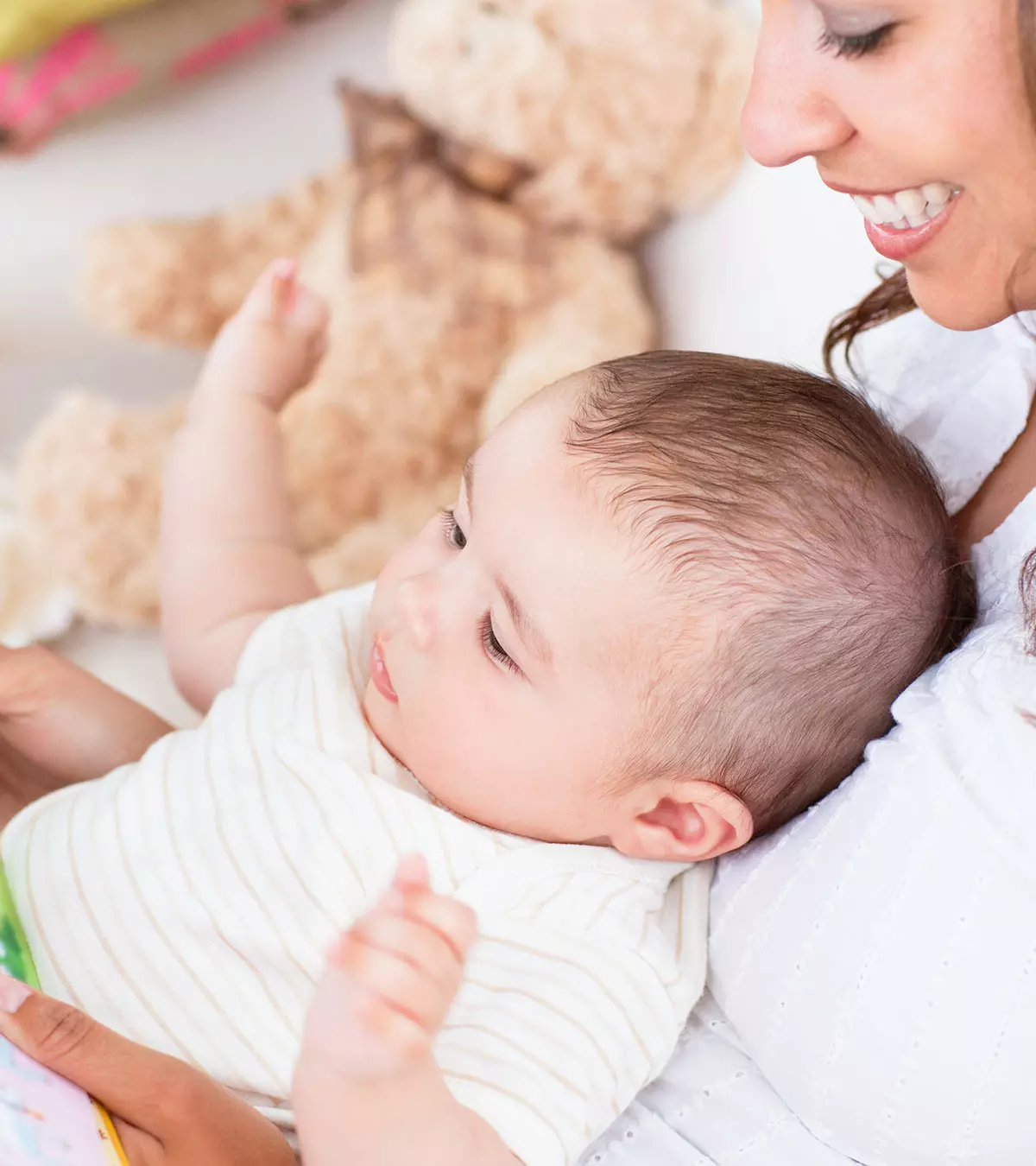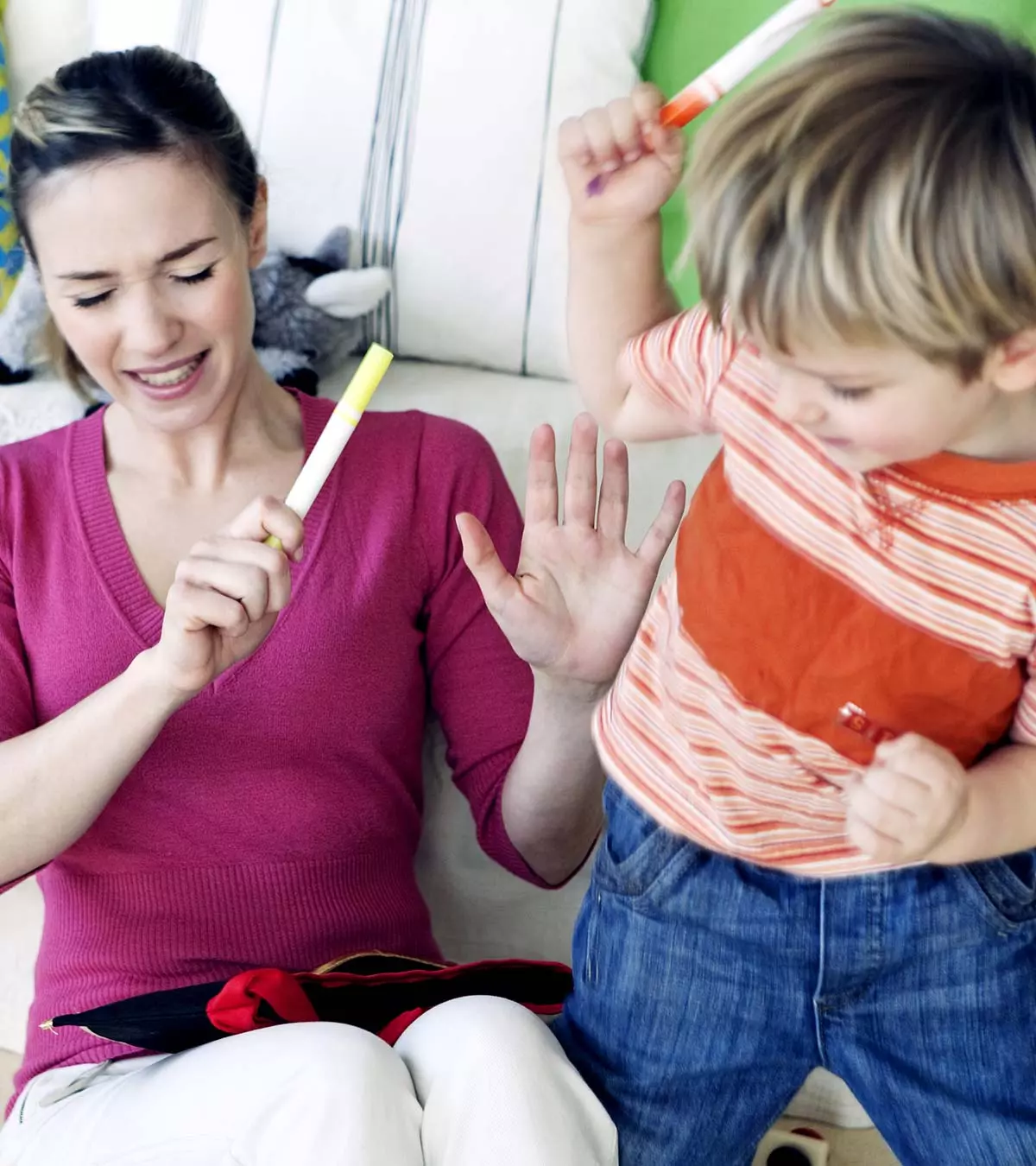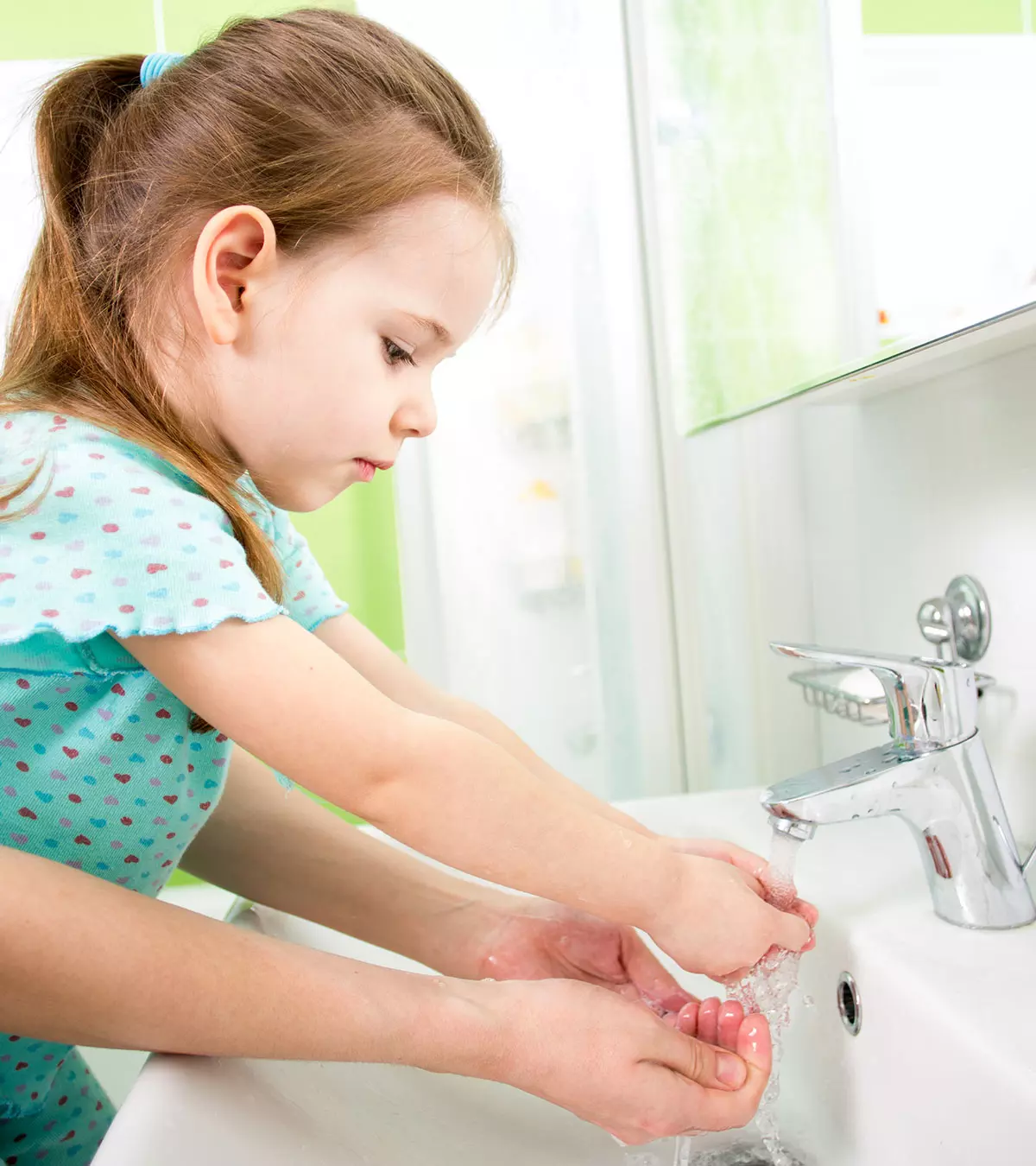
Image: Shutterstock
Teaching children healthy habits is important to help them have a good-quality life in the future. In this post, we list the most important healthy habits for kids that will hold them in good stead.
As the days pass by, your little champ learns new things and develops physically as well as emotionally. Parents play a crucial role in modeling healthy behaviors, as children often consider them role models. By practicing good habits themselves, parents can effectively teach their children the importance of a healthy lifestyle. And the best time to start inculcating these habits in them is when they are young.
Moreover, teaching them the importance of healthy habits like regular exercise, practicing mindfulness and proper hydration will help them stay away from illnesses or infections. So, how do you imbibe these healthy habits in your children? We’ve got you covered. Read on for a list of important healthy habits that children should know and ways in which you can teach these to them.
 Do remember
Do rememberKey Pointers
- Responsible parents must teach good habits to their children to instill discipline in them from a young age.
- Children should learn the importance of healthy meals, reducing unhealthy drinks, personal hygiene, self-care, and being organized.
- Parents should teach their children to limit screen time, play on the playground with friends, and spend time with family.
- Children should prioritize mental health, get enough sleep, and take care of their safety.
Top 20+ Healthy Habits For Kids
To simplify things, here we’ve prepared 20+ most important healthy habits that need to be inculcated into their daily routines.
Habits For Kids To Learn
Here are some habits that children should imbibe in their routine right from their foundation years.
1. Don’t skip breakfast

Image: IStock
Getting your kid into a regular routine of breakfast-lunch-dinner will help him avoid unnecessary snacking right from the very beginning. This is probably the most crucial and important stage when it comes to helping your kid adopt healthy eating habits. Breakfast is the most important meal of the day and helps them start their day the right way. A healthy breakfast complete with all food groups serves as a rich source of nutrition and will help your kid stay energetic and active throughout the day (1).
 Quick tip
Quick tip2. Don’t forget to wash hands
Hand washing undoubtedly tops the list when it comes to getting your kid into a healthy habit – explain the importance of washing hands to your little kid, and also focus on the correct techniques – 20 seconds is a must for children. Teach your kids to wash their hands with soap or hand-wash liquid. Rinse well with water after using the bathroom and before eating food. The same must be followed after they come home from playing outdoors as it would help to prevent your kid from getting any kind of infection from other kids (2).
3. Use tissues properly
Make sure your kids follow the etiquette of using a tissue or kerchief when they need to cough or sneeze. You also get them into the habit of disposing of the tissues right away. Keep a trash can in your kid’s room. This would help to prevent the spread of infections among your kids. Also tell your kid to wash his or their hands immediately after sneezing to eliminate spreading of the infectious virus. Teach your kids about how germs can pass through from one kid to another and tell them that using tissues would prevent that (3).
4. Learn to flush
Your kid is well past his toilet training sessions. Good! Now make sure you educate them on the importance of flushing his efforts down. This will make them aware of how to use a toilet even if you are not around.
5. Go outdoors
It’s the age of iPads and Xboxes, and often, you may find your kid stuck to the television set or his brand-new tablet. If that’s the case, encourage your kid to find happiness in outdoor activities. For example, get a pet dog and ask them to take him for a walk, or do some hula hoop swirls out in the garden with your naughty little kid. If they feel bored, get them to perform household activities such as walking the dog, car washing, or cleaning the yard. You can even ask for their help in daily gardening to ensure they stay active and fit (4). Going outdoors and outside, even for some time a day, will improve their physical and mental health.
6. Spend time with family
Family time is important, especially for a growing baby. Dinner is often the best time for the entire family to sit down to eat and talk. This way, your kid will be less prone to snacking and grabbing the wrong foods, enjoy time with their parents, and connect to them better. Make sure everyone unplugs and is off their devices so that they can enjoy quality family time together around the table.
7. Read everyday

Image: IStock
Dread the bedtime stories your little kid gets excited for? Several studies have revealed how helping your child read, and reading out to him could help develop strong reading skills and may help your kid succeed in school and work (5).
8. Have a bath
Every once in a while, your kid may make a lot of fuss about getting into the bathroom and having a bath- it’s always best to have some cute bath bombs, soaps, shampoos and toys handy. The general idea is to make regular activities a fun time for your kid, until they grow older (6).
 Did you know?
Did you know?9. Ditch the soda
It is shocking how younger children today are falling prey to unhealthy eating habits, and several studies have found that soda consumption is on the rise in kids. Make sure your kid sticks to preferably water to keep themselves hydrated.
10. Stay active
Drop your kid’s habit of lying down on the couch for too long right in the beginning- couch potatoes are more likely to be overweight and have a higher risk of being affected by developmental problemsiA set of developmental abnormalities in physical, learning, language, or behavioral abilities. and may also put in a poor performance at school (7). Thus encourage your kid to go out more often and get a breath of fresh air.
11. Brush your teeth
Dental hygiene is a vital part of personal hygiene for kids. Kids ought to realize the importance of brushing their teeth everyday right from their childhood. They tend to snack a lot, so they need to have their teeth clean to prevent the occurrence of cavities. For this, kids must brush twice a day using less-fluoride toothpaste to fight decay and cavities in their teeth. Also, kids should not eat food after brushing their teeth at night (8).
12. Sleep well
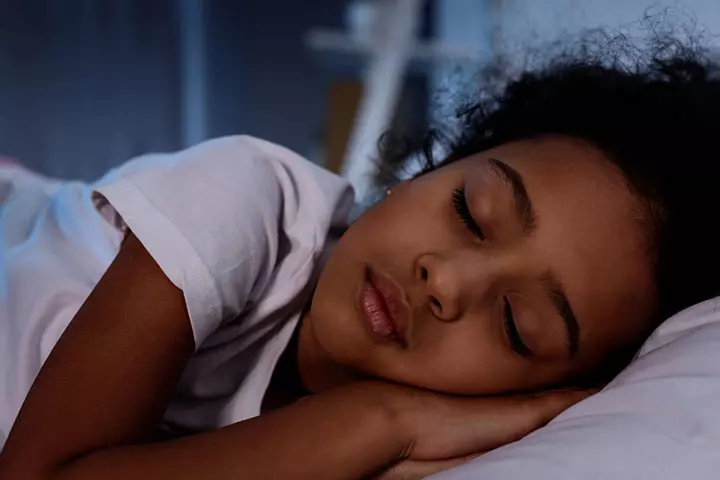
Image: IStock
Kids within the ages from 6 to 12 require at least 9 to 12 hours of sleep at night to maintain their health. Your children should go to sleep at the same time everyday; regular sleep patterns can help them to be more attentive in classes, stay in a better mood during the day and build immunity. For small kids, having a story time or a favorite doll near them would help them sleep peacefully (9).
13. Dab on the sunscreen
Planning an outing at the beach during the summer? Thirty minutes before you leave home, apply a branded and preferably parabeniA group of preservatives that are commonly used in drugs and cosmetics. -free sunscreen lotion on your kids, as it will help their skin to stay free from all kinds of infections. Make your kids wear the lotion during the peak summer hours from 10am to 4pm or organize indoor activities to help them stay indoors and have fun (10).
Habits For Parents To Note
Here are some healthy habits that parents can inculcate for their kids’ well-being.
14. Schedule their vaccination
Make sure you maintain up-to-date records of your child’s vaccination. Check with your doctor to make sure that you offer your kids the right shot at the right date for prevention of diseases. Keep the immunization records handy to carry it during the next appointment with the doctor (11).
15. Avoid keeping reptiles as pets
Some reptiles have harmful bacteria called salmonellaiA bacteria that typically result in food poisoning and is present in the gut. residing in their body, which can be fatal for your kids. Do not allow your kids to have lizards, turtles or snakes as pets, even if they are of harmless breed.
16. Focus on limiting screen time
Kids love to watch their favorite cartoon show, their favorite match or film for many hours together. But this is not a good idea as it can harm their eyes and deprives them of their sleep and makes them prone to various infections. Have a fixed time for such activities and tell them you would be lenient occasionally if they promise to maintain the schedule every day (12).
17. Take them for health checkups
Preventive care is essential to maintain your child’s health. Your kid’s health must be checked regularly every year and opt for annual dental check ups to prevent teeth issues and gum problems in kids or to minimize the risks associated with it. Select the right hospital for your family’s needs and stick with it to build a good history with your child’s doctor and get professional health tips for children.
 Point to consider
Point to consider18. Take care of their mental health

Image: IStock
Though all parents strive to fulfill all their kids’ needs, most of them pay less attention to their mental health. If your kid has a medical condition or if you have troubling domestic issues, then it can affect their mental health. Stay in touch with their teacher and keep track of the activities to detect any problems at an earlier stage (13). If you are worried, raise your concerns to school staff or your child’s pediatrician, who can help connect you with the right professional help.
19. Encourage them to stay positive
Parents are the first teachers of children. Display positive behavior so they can look up to you as a role model. Help them reframe their negative thoughts into positive ones by letting them focus on the good aspects. Encourage positive self-talk in your child by letting them speak with affirmations, which instills a sense of self-confidence (14). Moreover, foster a sense of gratitude in them by encouraging them to thank for all the positive aspects of their lives.
20. Teach the use of safety equipment
Your kids must know how to wear the seat belt while traveling in the car, wear goggles while in the swimming pool, wear a helmet while riding the bike or while practicing skating. This would help to prevent them from getting injured even if they meet with an accident.
21. Guide them to read food labels
Involve your kids in the shopping process at an early age. Make it fun and interactive by explaining to them what the key terms are on the food labels. Keep them informed about ingredients and calories. Make them understand their nutrition goals and help them to choose foods with potential nutrients. Also, teach them to check the expiry date of any food product so that they may not consume any rotten or expired products.
22. Help them to clean their genitals
If you have boys, educate them on how to clean their genitals using water while making sure that the foreskin is not retracted. If you have daughters, teach them the right way of using a tissue to wipe, which is from front to back and not vice versa. Teach them to come to you if they have any pain or burning sensation in there (15).
Frequently Asked Questions
1. Why is adopting healthy habits important for children?
Adopting healthy habits from childhood is essential since it protects the child from diseases, helps develop their social etiquetteiA set of norms on how to interact and behave with with family, friends, and society in general. , and makes them grow into responsible and healthy adults.
2. How can parents create a healthy environment for their children at home?
Creating a healthy environment at home involves providing access to nutritious foods, promoting regular physical activity, and setting limits on screen time. Parents play a vital role by encouraging open conversations about wellness, which helps children understand the importance of health and self-care. Modeling positive behaviors—such as exercising regularly, choosing balanced meals, and managing stress effectively—reinforces these values. By making healthy choices and creating routines that emphasize well-being, parents can foster a positive atmosphere where children feel motivated and supported in developing lifelong healthy habits.
3. What are some good habits children should follow in school?
Some good habits that children should follow in school are washing hands, flushing the toilet after use, staying polite to others, greeting friends and teachers, and focusing on the assigned task or class.
4. How can parents limit their children’s screen time, and what are the potential risks of excessive screen time?
Parents may establish clear and consistent rules regarding screen usage to limit children’s screen time, set screen-free zones or times, encourage alternative activities such as outdoor play or hobbies, and model healthy screen habits. Excessive screen time may have potential risks, such as sedentary behavior, sleep disturbances, reduced physical activity, impaired social skills, decreased academic performance, and exposure to inappropriate content or cyberbullying. Parents must strike a balance and promote a healthy and well-rounded lifestyle for their children.
5. What role does physical activity play in a child’s health, and how much exercise should kids get each day?
Physical activity is crucial to a child’s overall health and well-being. It helps promote healthy growth and development, strengthens muscles and bones, improves cardiovascular fitness, enhances coordination and motor skills, and supports mental health and cognitive function. According to guidelines from the World Health Organization (WHO), children aged 5-17 should engage in at least 60 minutes of moderate to vigorous-intensity physical activity daily. This can include running, cycling, sports, active play, or structured exercises for kids at home. Regular physical activity is vital for children’s healthy lifestyles (16).
6. What are the benefits of establishing healthy habits at a young age?
Establishing healthy habits at a young age brings a multitude of advantages. It sets the foundation for lifelong well-being, reduces the risk of chronic diseases, and promotes physical and mental health. Additionally, it enhances personal development, leading to improved academic performance, increased focus, and better self-esteem, resulting in a higher overall quality of life.
7. How can parents encourage their children to eat more fruits and vegetables?
Parents may encourage their children to eat more fruits and vegetables by being role models, making it fun through creative presentations, and involving them in meal preparation. By offering various options and making them easily accessible, parents can help instill a positive attitude towards healthy foods. Patience and persistence are key as children may take time to develop a liking for certain fruits and vegetables.
Healthy habits for kids are essential because they go a long way in defining their personalities and protecting them from illness. Therefore, it is your responsibility to encourage children to learn age-appropriate healthy habits. For example, not skipping breakfast, washing themselves after they come home from outdoors, leaving the toilet clean, and bathing every day are some habits parents should teach their children. By instilling these healthy habits, parents can foster a sense of responsibility in their children and enhance their individuality and overall quality of life. When inculcated consciously, these habits become a part of children’s routine and ensure their overall well-being and growth.
Infographic: Health Tips For School-Going Children
Parents play a vital role in ensuring their child’s safety and good health while at school. Read through this infographic to learn about some essential tips that could help keep your child healthy and safe at school. Illustration: Momjunction Design Team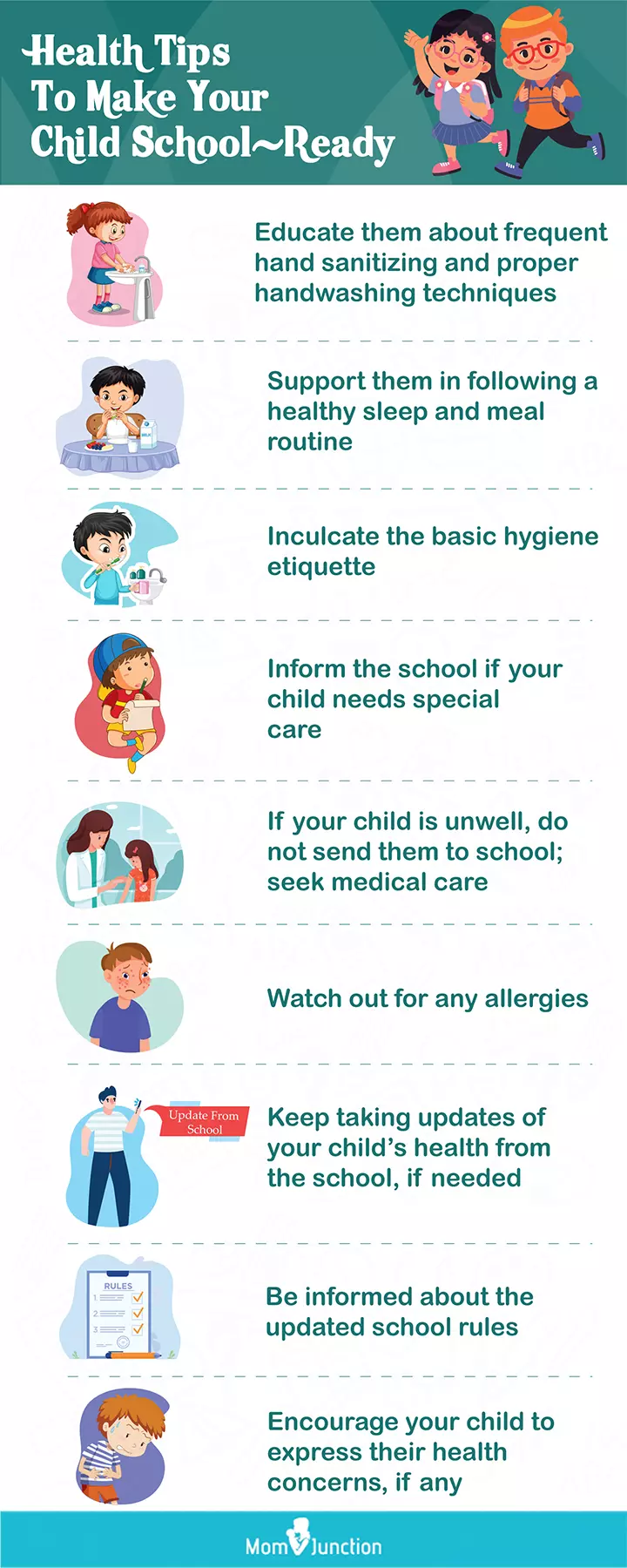
Good habits are important for kids to learn. This video will teach kids different good habits and how to avoid bad habits.
References
- Kaitlyn M. Eck et al.; (2019); The “Motor of the Day”: Parent and School-Age Children’s Cognitions Barriers and Supports for Breakfast.
https://www.ncbi.nlm.nih.gov/pmc/articles/PMC6765899/. - About Hand Hygiene as a Family Activity.
https://www.cdc.gov/clean-hands/prevention/?CDC_AAref_Val=https://www.cdc.gov/handwashing/handwashing-family.html - Healthy Habits: Coughing and Sneezing.
https://www.cdc.gov/hygiene/about/coughing-and-sneezing.html - Playing Outdoors.
https://www.nidirect.gov.uk/articles/playing-outdoors - Read It Again! Benefits of Reading to Young Children.
https://headstart.gov/publication/read-it-again-benefits-reading-young-children?redirect=eclkc - Personal Hygiene for Children.
https://www.healthdirect.gov.au/personal-hygiene-for-children - Tips to Support Healthy Routines for Children and Teens.
https://www.cdc.gov/healthy-weight-growth/tips-parents-caregivers/?CDC_AAref_Val=https://www.cdc.gov/healthyweight/children/index.html - Oral Health Tips for Children.
https://www.cdc.gov/oral-health/prevention/oral-health-tips-for-children.html?CDC_AAref_Val=https://www.cdc.gov/oralhealth/basics/childrens-oral-health/index.html - Shalini Paruthi. Consensus Statement of the American Academy of Sleep Medicine on the Recommended Amount of Sleep for Healthy Children: Methodology and Discussion.
https://www.ncbi.nlm.nih.gov/pmc/articles/PMC5078711/ - Sun Safety Facts.
https://www.cdc.gov/skin-cancer/sun-safety/?CDC_AAref_Val=https://www.cdc.gov/cancer/skin/basic_info/sun-safety.htm - Five Important Reasons to Vaccinate Your Child.
https://www.hhs.gov/immunization/get-vaccinated/for-parents/five-reasons/index.html - Screen time and Children.
https://medlineplus.gov/ency/patientinstructions/000355.htm - Child and Adolescent Mental Health.
https://www.nimh.nih.gov/health/topics/child-and-adolescent-mental-health - Encouraging a Positive Attitude in Kids.
https://cosmickids.com/five-simple-ways-to-raise-a-positive-child/ - Personal hygiene for children: in pictures.
https://raisingchildren.net.au/toddlers/health-daily-care/hygiene-bathing/personal-hygiene - Physical activity
https://www.who.int/news-room/fact-sheets/detail/physical-activity#:~:text=Children%20and%20adolescents%20aged%205,physical%20activity%2C%20across%20the%20week
Community Experiences
Join the conversation and become a part of our nurturing community! Share your stories, experiences, and insights to connect with fellow parents.
Read full bio of Dr. Holly Schiff
Read full bio of Harshita Makvana
Read full bio of Deepa Thomas
Read full bio of Kavita Kankani





